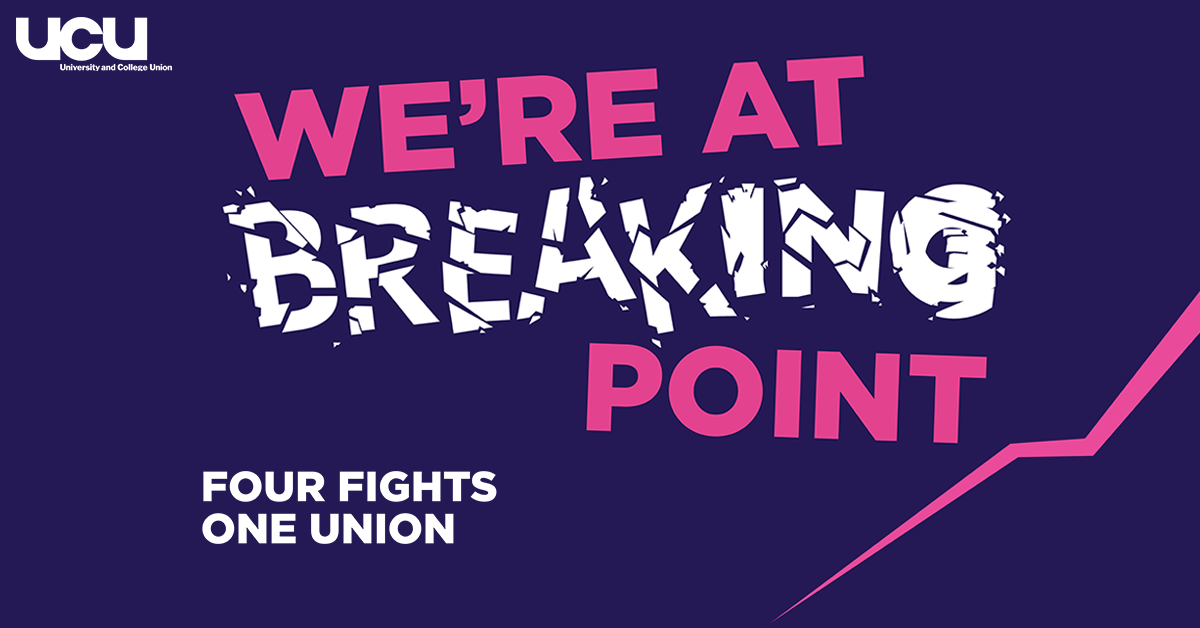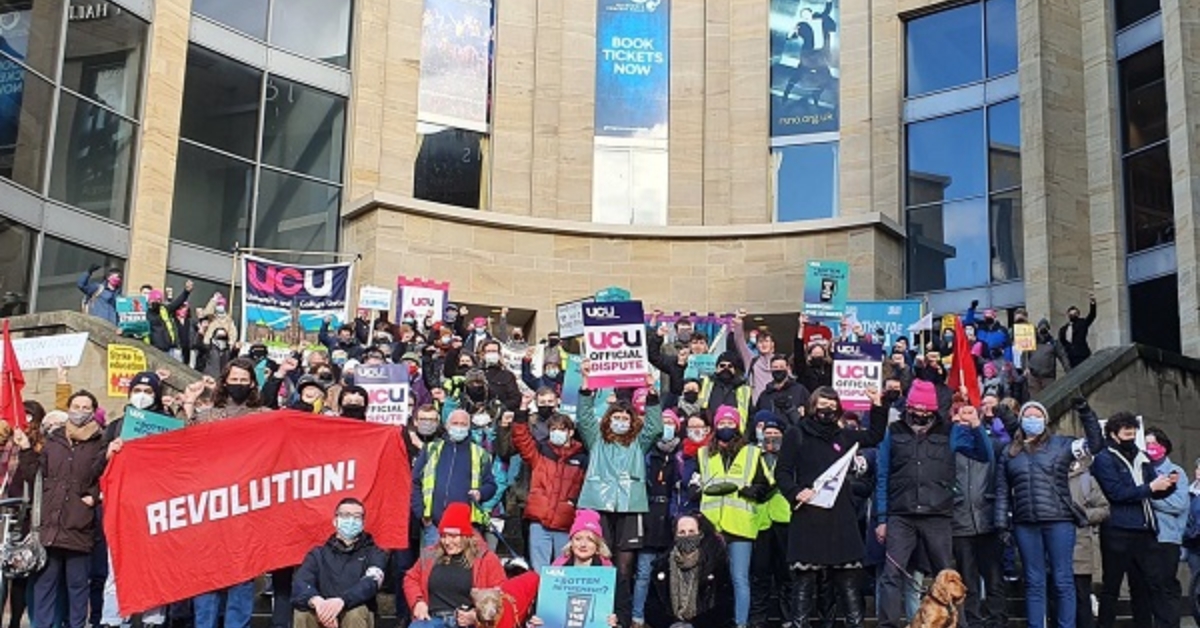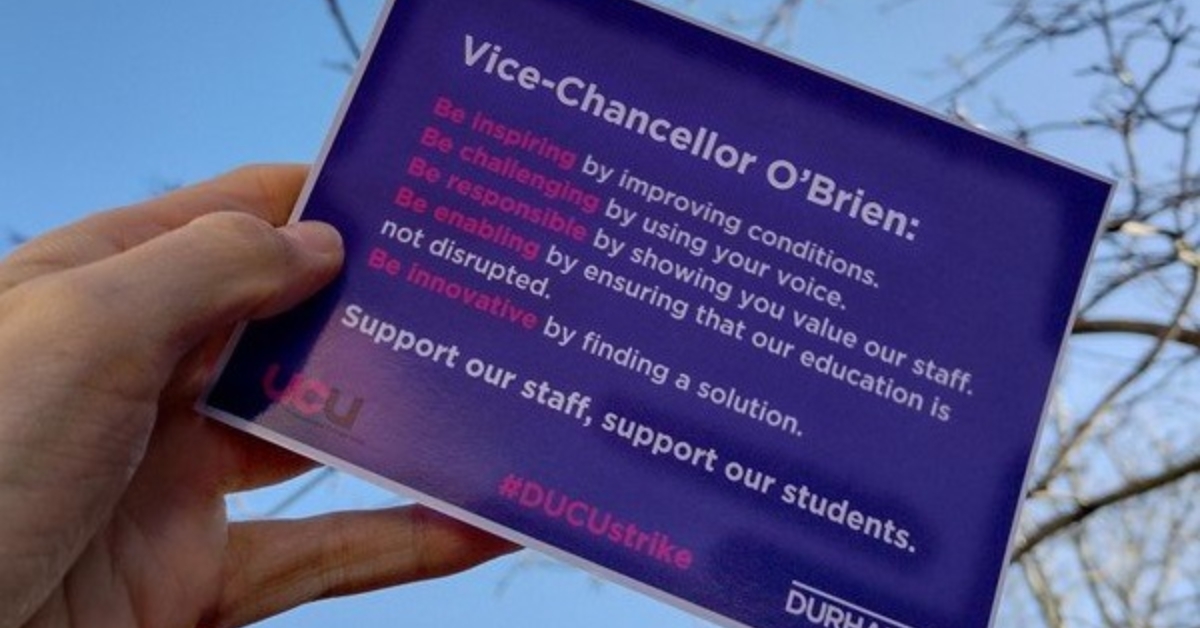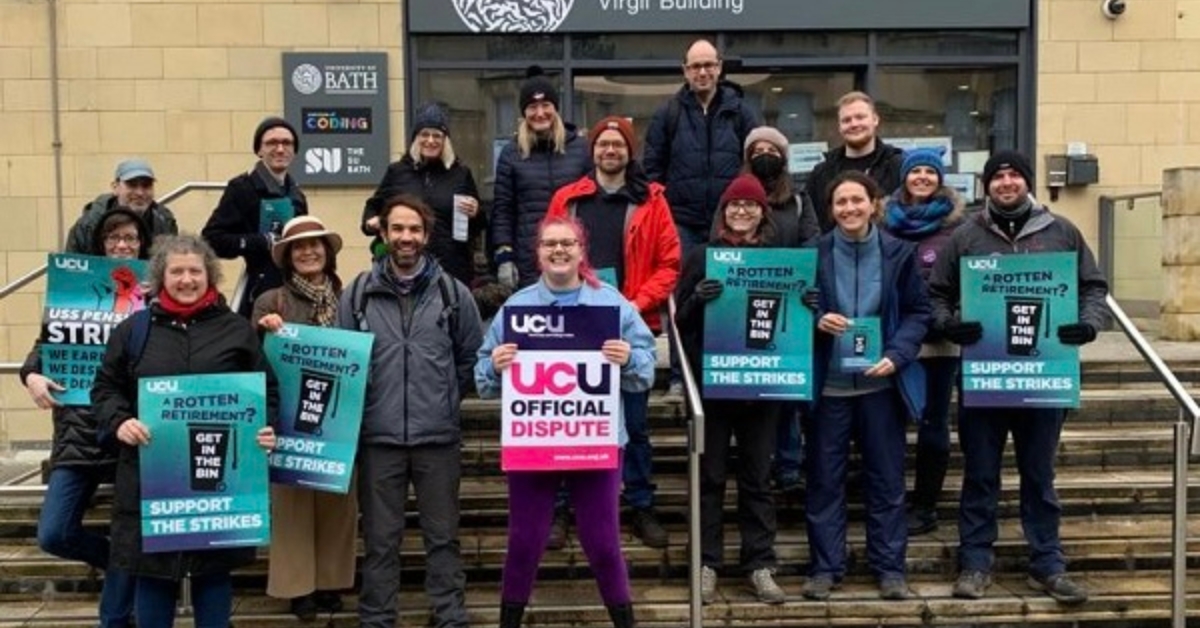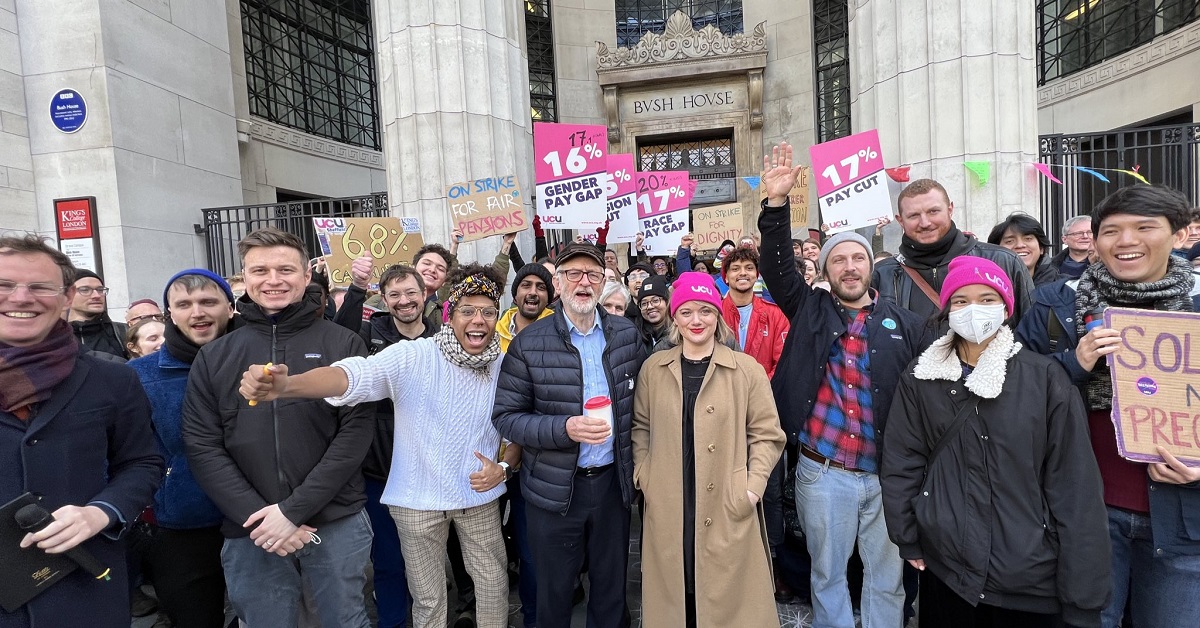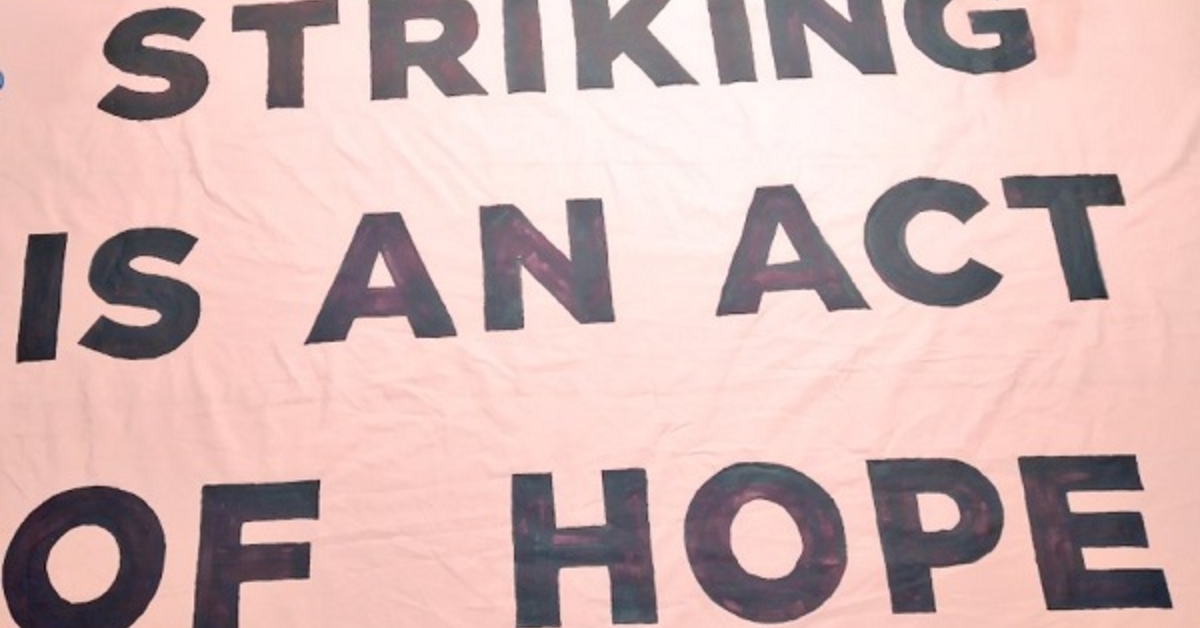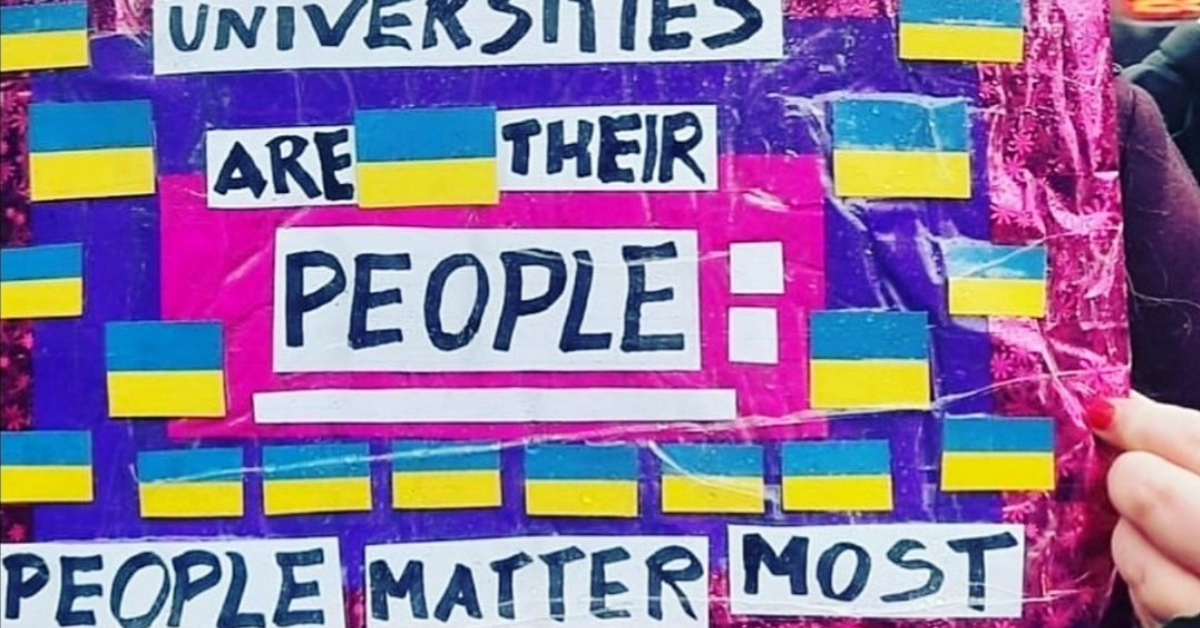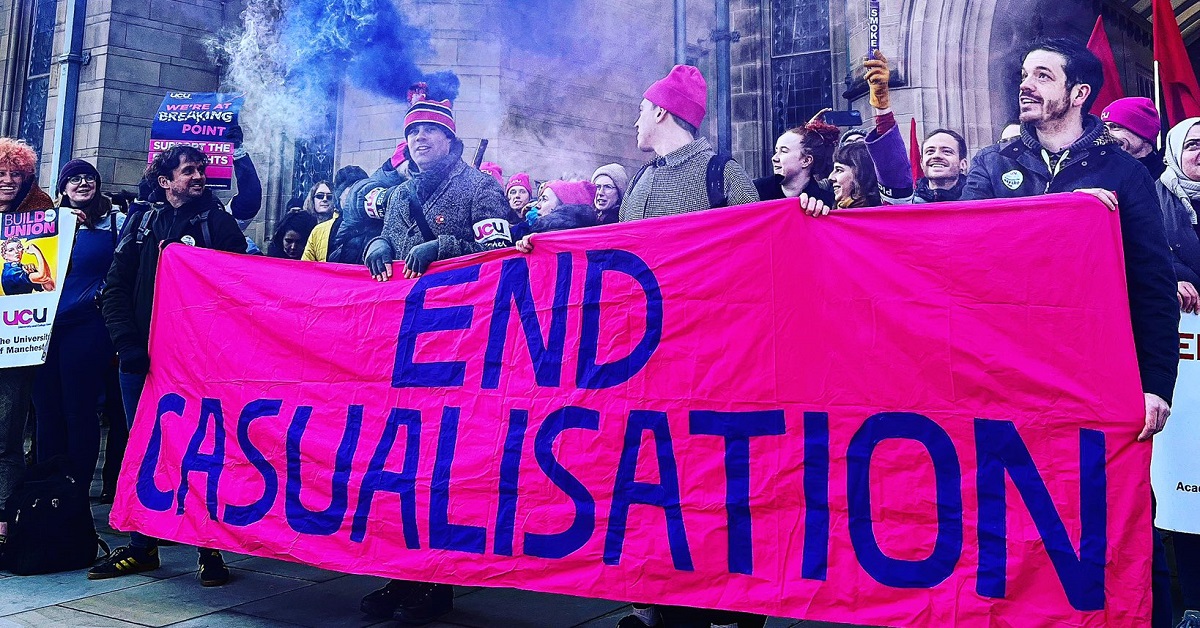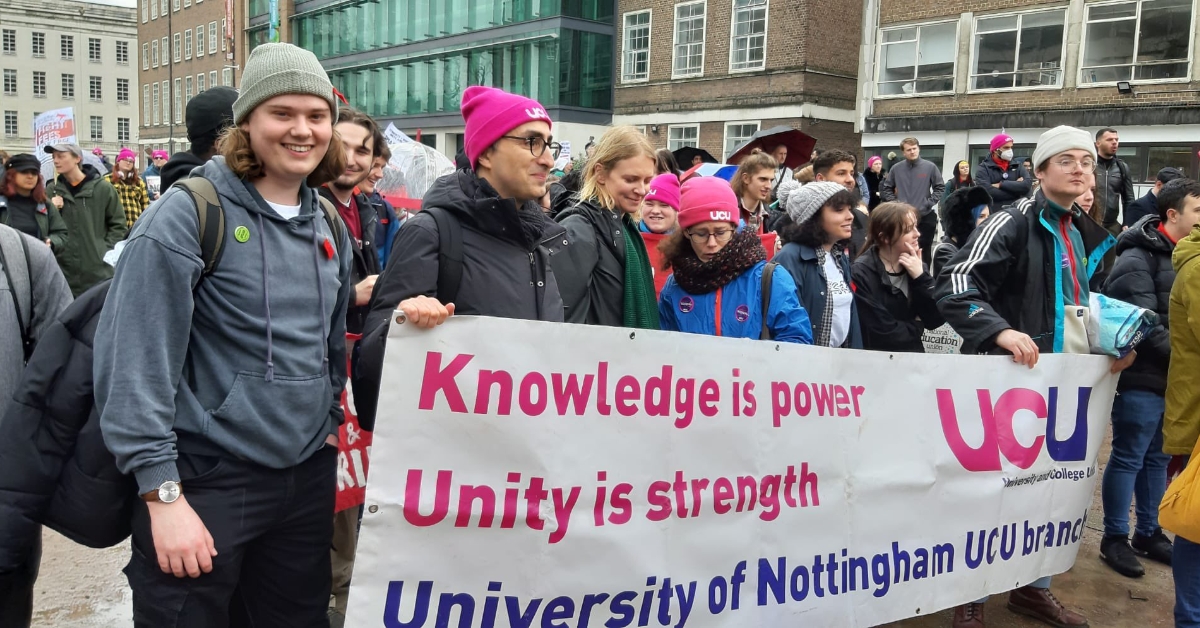
Dispatches from the picket lines, Wednesday 2 March
2 March 2022
Image: University of Nottingham UCU's delegation at the NUS rally in London for free education, Wednesday 2 March.Today is the last day of this wave of strike action at 63 universities over our Four Fights: casualisation and precarity; gender, ethnic and disability pay gaps; hazardous workloads; and pay erosion. You can click this page to see photos from rallies at Manchester, Edinburgh, Leeds, Glasgow, Sheffield, Bristol, London and many others. The presidential team visited picket lines at University of Greenwich, SOAS, London School of Hygiene and Tropical Medicine, and City, University of London.
UCU joined forces with the National Union of Students (NUS) this afternoon. We marched to Woburn Square in London, where the headquarters of Universities UK (UUK) and Universities and Colleges Employers Association (UCEA) are located, and UCU members participated in the events held as part of NUS's Student Strike for Education.
In Monday's dispatches I discussed the blight of casualisation and precarity that threatens the entire higher education sector, and yesterday I laid out the problems of pay erosion and the gender, ethnic and disability pay gaps. As many UCU members return to their desks tomorrow, I want to talk with you about workload, which before the Covid-19 pandemic was already unsustainable, and had by now become unsafe. According to the October 2021 Education Support report (written by Dr Siobhan Wray at University of Lincoln and Professor Gail Kinman at Birkbeck, University of London), 53% of university staff surveyed showed probable signs of depression, 79% said they needed to work very intensively often or always, 29% reported feeling emotionally drained from work every day, and 21% of academic staff work an extra two days (16 hours) per week on top of contracted hours. Teachers are taking on more classes with larger number of students ever, while our academic-related and professional services (ARPS) colleagues are constantly being asked to make do with less. Burnout and work-related sickness are rife across the higher education sector.
It won't surprise you that UCU's demands are simple and eminently reasonable: we want 35 hours to be the standard weekly employment contract across all higher education institutions; we want a UK-wide action plan for workload model agreed between universities and their local trade unions; and we want that workload model to adequately capture all the different elements of our jobs and to take into account of post-pandemic changes in working practices such as hybrid/online pedagogy. We're asking university senior management to stop paying lip-service to 'staff well-being' and actually commit to something that will bring meaningful change to our working lives and restore some semblance of work-life balance.
Our Four Fights, as well as the USS pension dispute, are far from over. We're facing some incredibly intransigent employers. The higher education committee (HEC) met on Friday 25 February and made a number of key decisions about our next steps. We'll be in a position to announce more about this shortly.
Finally, I'd like to ask you to carry on using UCU's tool to email your vice-chancellors to make sure that your voices are heard, and to donate anything you can to the UCU fighting fund, especially if you're in a non-striking branch. I'd also ask you to read Education International's website, where education unions around the world--including UCU and NASUWT in the UK--are expressing their steadfast solidarity with the people of Ukraine and unequivocally condemn the Russian invasion of the country.
Jo Grady
UCU general secretary
Click here to read previous dispatches from the picket lines.
- PrintPrint this page
- Share


